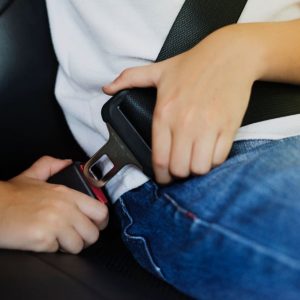Four Major Safety Tips for Driving with Kids
 If you’re a parent, you’ll want to take extra precautions to keep your kids protected when you drive. Little ones are particularly vulnerable to traumatic injuries that result from auto accidents, and implementing the right safety measures can save them from major bodily harm. Here are four key safety tips for driving with kids.
If you’re a parent, you’ll want to take extra precautions to keep your kids protected when you drive. Little ones are particularly vulnerable to traumatic injuries that result from auto accidents, and implementing the right safety measures can save them from major bodily harm. Here are four key safety tips for driving with kids.
Install Car Seats
Car seats are designed to provide greater stability for young passengers so that they’re more secure in the event of an accident.
HealthyChildren.org recommends installing rear-facing car seats for toddlers and infants. Once they outgrow rear-facing car seats, forward-facing car seats that are convertible or come with a harness will be appropriate. Booster seats are generally recommended for older children up to 13 years old. All children who are under the age of 13 should ride in the back seat. This is especially true for rear-facing car seats, as airbags can cause serious damage by breaking the seat and hitting the child in the head.
Use Seatbelts Correctly
When a seatbelt can fit a child correctly, he or she will be able to be buckled in safely without the need for a car seat or booster seat. Some children can use adult seatbelts by themselves starting at age 10, but other children may have to wait until 13 years or older. To determine if the seatbelt properly fits a child, make sure that the shoulder belt rests across the chest and shoulder instead of the neck or throat. Another factor that determines if a child is ready for a seatbelt is if his or her knees can bend naturally over the edge of the seat while sitting with the back against the seat back. Alternatives to booster seats can include straps and buckles that adjust the angle of the seatbelt to go across the chest. It is essential to know, as well, that children should never ride on the lap of an adult, but that every passenger should have their own seat and seatbelt. Not only is it essential to the health and safety of your child to use seatbelts correctly, but failure to comply with seatbelt laws and regulations may make things harder on your auto accident injury attorney in the insurance case, potentially leading to a lower insurance payout due to negligence.
Keep Kids Entertained
Few things can be more distracting than fussy children in the back seat while driving, but it’s important that you take steps to prevent that. Distracted driving is extremely dangerous for you and your children. Instead of tending to various needs during the drive, it may help to let an older child or spouse assist the children while you are driving. Other alternatives and aids can include finding ways to keep the kids distracted and entertained without you having to divert your attention from the road. Electronic games, movies, and music offer great ways to entertain young passengers and keep them from getting bored. You can also bring along some children’s books, coloring books or car board games for additional entertainment. If problems arise in the back seat, however, it’s best to pull over and attend to the situation while parked rather than trying to reach back and help while continuing to drive.
Check Airbags
Just about every car, truck, SUV and van nowadays come with standard airbags to provide extra cushioning for the head and other sensitive areas of the body when a collision occurs. It’s best to check to make sure that your airbags are able to deploy safely. A lot of vehicles are equipped with airbag test features, or you can take your vehicle to the dealer on occasion to have a test performed. It’s also a good idea to learn if your airbags have been recalled because of safety concerns. Many Takata airbag recalls that started back in 2016 are continuing to take place, and it’s essential to be aware of any recalls that may involve your vehicle.
Safety should always come first when transporting your children by vehicle. By keeping your little ones protected, you’ll be able to avoid injuries that could jeopardize their well-being. Car crashes can be devastating, but when you take the proper steps, you can greatly reduce the chances of your family being seriously injured.
By Meghan Belnap
Leave a Reply
Want to join the discussion?Feel free to contribute!